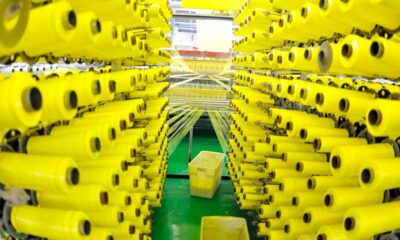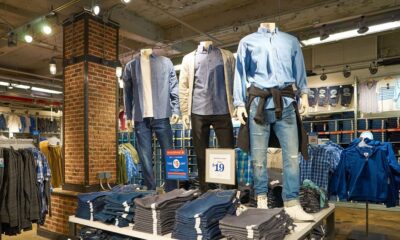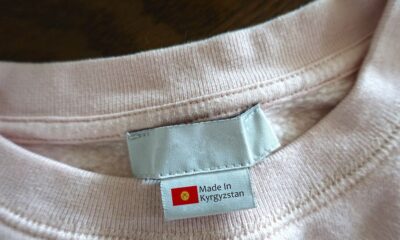Fashion
VF Corp revenue totals $2.8 billion in Q2 FY26, net debt drops 21%
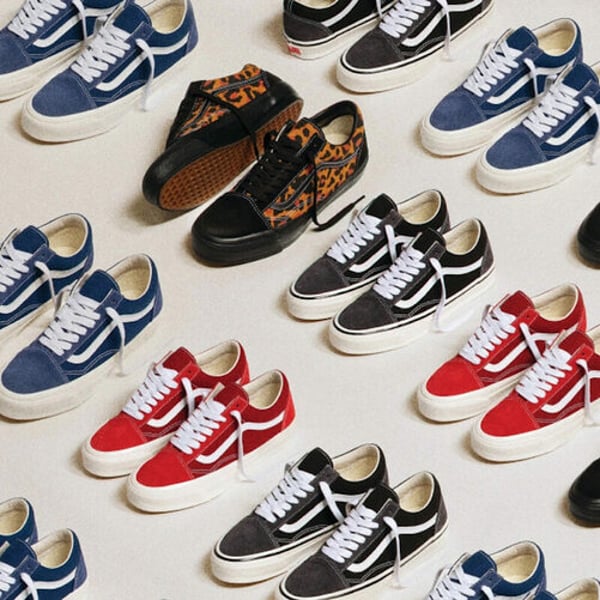
Published
October 28, 2025
VF Corporation’s revenue reached $2.8 billion in the second quarter of the 2026 financial year, rising 2% year on year. The Vans, Timberland, The North Face, and Dickies owner also reduced its net debt by 21% compared to the same period last year, it announced on October 28.
Vans reported a 9% loss in the second quarter, down from 11% a year prior. Timberland and The North Face reported 7% and 6% growth respectively. The results exceeded prior guidance and reflect better-than-expected back-to-school results and early wholesale demand, according to VF Corp.
“In Q2 we made further progress on our turnaround plan,” said the business’ president and CEO Bracken Darrell in a release posted on VF Corp’s website. “We delivered broad-based growth for The North Face® and Timberland®, while continuing to moderate declines in Vans®. We also announced the pending sale of Dickies® for $600 million, enhancing our capacity to invest in the portfolio and drive shareholder returns. Looking ahead, we will continue to focus on generating value across our brands and returning the company to sustainable and profitable growth.”
VF Corp’s adjusted operating income totalled $330 million and its operating income was at $313 million in the second quarter. The business reported an operating margin of 11.2%, up by +130 bps compared to the second quarter of the 2025 fiscal year, with a gross margin of 52.2%.
VF Corp expects to report adjusted operating income of over $275 million in the third quarter of the 2026 financial year. The business foresees both its adjusted operating income and its operating cash flow increasing year on year for the whole 2026 fiscal year.
Along with announcing its results for the quarter ending September 27, the business’ Board of Directors authorised a quarterly per share dividend of $0.09, payable on December 18, 2025, to shareholders of record at the close of business on December 10, 2025. VF Corp’s shares were up about 4% in premarket trading, Reuters reported. Based in Denver, Colorado, the business’ results come in contrast to a backdrop of increasing US retail pressure, fuelled by US-imposed global tariffs.
Copyright © 2025 FashionNetwork.com All rights reserved.
Fashion
South Indian cotton yarn under pressure on weak demand
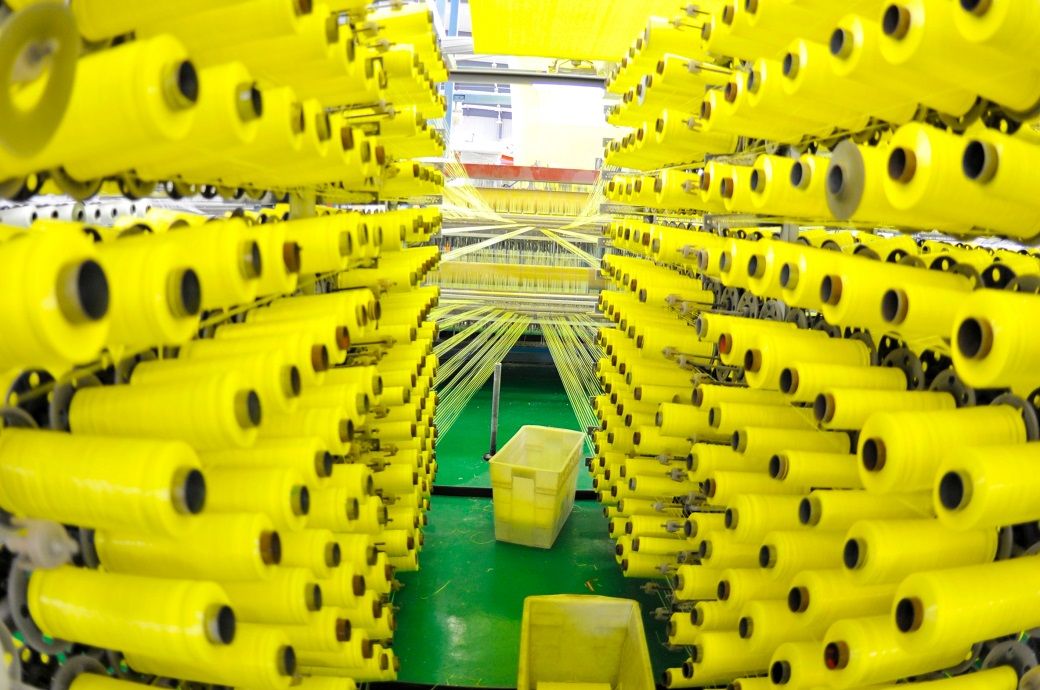
In the Mumbai market, cotton yarn prices remained unchanged as the loom sector slowed production. Although spinning mills are looking to raise their selling rates, they have not found sufficient demand. A Mumbai-based trader told Fibre*Fashion, “Power and auto looms are facing limited fabric buying from the garment industry. Export prospects are still unclear. Domestic demand is also insufficient to support any price rise. Mills are comfortable with falling cotton prices, while buyers remain silent on yarn purchases.”
In Mumbai, ** carded yarn of warp and weft varieties were traded at ****;*,***–*,*** (~$**.**–**.**) and ****;*,***–*,*** per * kg (~$**.**–**.**) (excluding GST), respectively. Other prices include ** combed warp at ****;***–*** (~$*.**–*.**) per kg, ** carded weft at ****;*,***–*,*** (~$**.**–**.** per *.* kg, **/** carded warp at ****;***–*** (~$*.**–*.**) per kg, **/** carded warp at ****;***–*** (~$*.**–*.**) per kg and **/** combed warp at ****;***–*** (~$*.**–*.**) per kg, according to trade sources.
Fashion
Bangladesh–US tariff deal may have limited impact on India
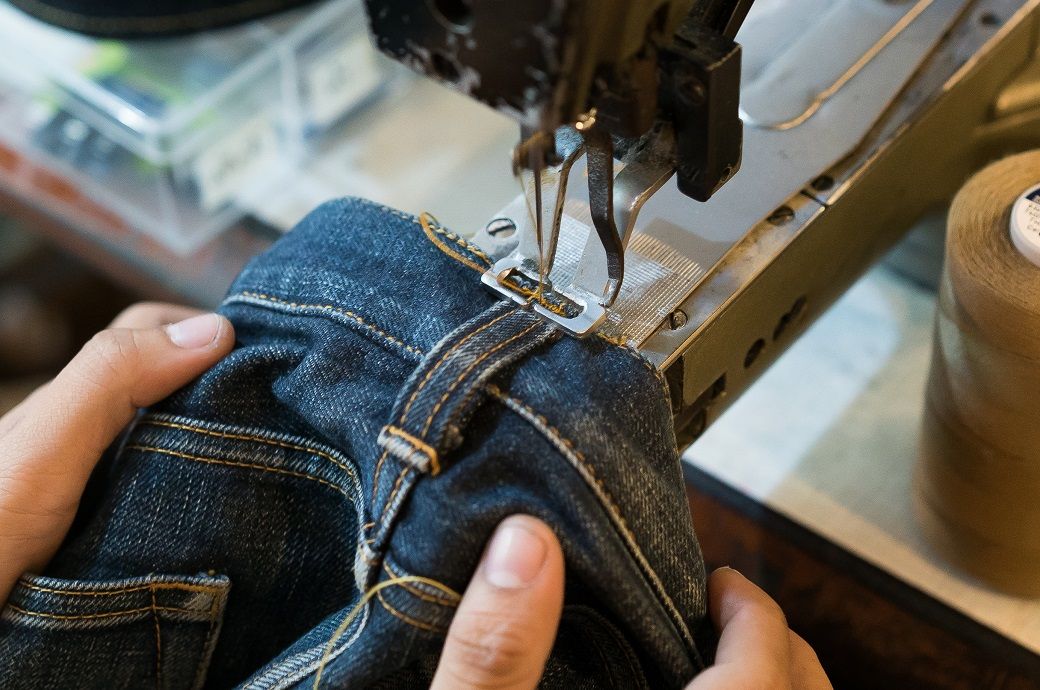
Bangladesh is already among the top suppliers of apparel to the US, particularly in basic knit and woven categories such as T-shirts, trousers and sweaters. A tariff advantage, even if modest, could sharpen its price competitiveness in high-volume, price-sensitive segments dominated by mass retailers.
The proposed Bangladesh–US trade understanding offering near zero-tariff access for garments has sparked debate in India’s textile sector.
While Bangladesh may gain a price edge in basic apparel, industry leaders believe the effective advantage could be limited to 2–3 per cent due to raw material dependence, capacity constraints and logistics costs.
However, Indian industry leaders argue that the net gain for Bangladesh may be restricted to around 2–3 per cent in effective competitiveness. They point to structural constraints, including Bangladesh’s heavy reliance on imported raw materials. A significant share of its fabric and yarn requirements is sourced from China and India, limiting flexibility in rules-of-origin compliance if strict value-addition conditions are attached to the deal.
Capacity limitations in spinning, weaving and man-made fibre processing are also seen as bottlenecks. While Bangladesh has built scale in garmenting, its upstream integration remains narrower than India’s diversified fibre-to-fashion base. Indian exporters emphasise that integrated supply chains offer advantages in speed, customisation and smaller batch production.
Logistics and lead times may further temper expectations. Distance from major US ports, coupled with infrastructure pressures and global shipping volatility, could offset part of the tariff benefit. In contrast, Indian suppliers have been investing in port connectivity, digital compliance systems and flexible production models to strengthen reliability.
Industry representatives also highlight that US buyers are increasingly factoring in sustainability, traceability and geopolitical risk. India’s growing adoption of renewable energy in textile clusters, compliance with global standards and broader product depth may help it retain strategic sourcing partnerships.
While some diversion of orders in basic categories cannot be ruled out, exporters believe the overall impact will be incremental rather than disruptive. The consensus view is that tariff preference alone is unlikely to override considerations of scale, compliance, diversification and long-term supply-chain resilience.
Fibre2Fashion News Desk (KUL)
Fashion
US lawmakers introduce Last Sale Valuation Act to end customs loophole

“This bill protects Louisiana workers and American businesses, ensuring loopholes don’t hold them back,” Dr Cassidy said in a press release.
US Senators Bill Cassidy and Sheldon Whitehouse have introduced the Last Sale Valuation Act to close the ‘first sale’ customs loophole that lets importers underpay duties.
The bipartisan bill would base tariffs on final sale values, strengthen US Customs enforcement and curb duty evasion.
Supporters say it will protect American manufacturers, workers and federal revenue.
If passed, the bipartisan measure would grant clearer enforcement authority to US Customs and Border Protection (CBP), streamline valuation reviews and reduce disputes over documentation, while curbing mis-invoicing and related-party pricing schemes linked to tariff evasion and illicit financial activity.
The legislation has drawn support from the American Compass, the Coalition for a Prosperous America and the Southern Shrimp Alliance.
“Cassidy’s ‘Last Sale Valuation Act’ strengthens customs valuation by assessing duties on the final transaction value of goods entering the US,” said Mark A DiPlacido, senior political economist at the American Compass, adding that closing the judicially created ‘first sale’ loophole would reduce duty evasion, simplify enforcement and increase customs revenue.
Jon Toomey, president of the Coalition for a Prosperous America, said the bill is “an important first step in restoring customs integrity,” ensuring duties are paid on the true commercial value of imported goods and helping level the playing field for American manufacturers and workers.
Fibre2Fashion News Desk (CG)
-

 Entertainment1 week ago
Entertainment1 week agoHow a factory error in China created a viral “crying horse” Lunar New Year trend
-

 Business4 days ago
Business4 days agoAye Finance IPO Day 2: GMP Remains Zero; Apply Or Not? Check Price, GMP, Financials, Recommendations
-

 Tech1 week ago
Tech1 week agoNew York Is the Latest State to Consider a Data Center Pause
-

 Tech1 week ago
Tech1 week agoNordProtect Makes ID Theft Protection a Little Easier—if You Trust That It Works
-

 Tech1 week ago
Tech1 week agoPrivate LTE/5G networks reached 6,500 deployments in 2025 | Computer Weekly
-

 Fashion4 days ago
Fashion4 days agoComment: Tariffs, capacity and timing reshape sourcing decisions
-

 Business1 week ago
Business1 week agoStock market today: Here are the top gainers and losers on NSE, BSE on February 6 – check list – The Times of India
-

 Business1 week ago
Business1 week agoMandelson’s lobbying firm cuts all ties with disgraced peer amid Epstein fallout


